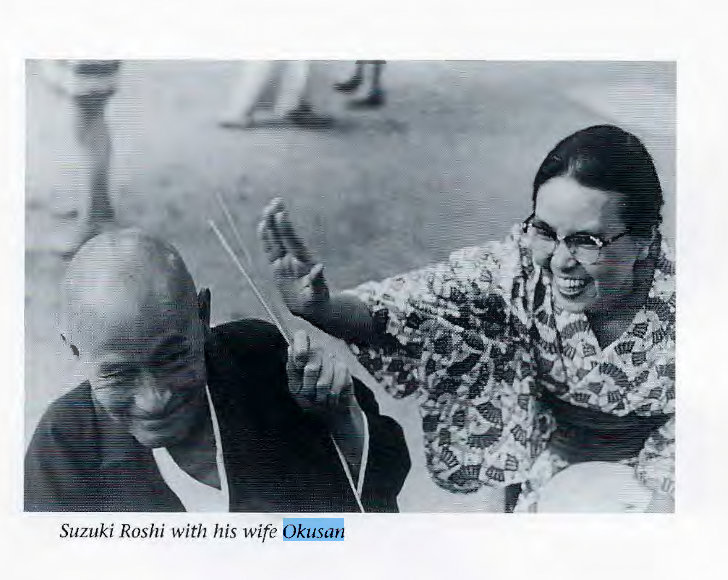
cuke.com - Shunryu Suzuki Index - WHAT'S NEW - table of contents
Mitsu Suzuki in the Wind Bells
(publication of the San Francisco Zen Center)
1972---2004
more to come on this page
Mitsu Suzuki cuke page ---- All Wind Bells ----- Wind Bell Excerpts
Excerpted SFZC Wind Bell featuring Mitsu - Vol. 25, #1 - 1991 [her parts only]

|
From WB Vol. XI, 1972, p. 8 - article on life of Shunryu
WB 83 Winter
WB Vol.18-2, fall, 1984
WB Vol.20-2, fall, 1986 - 25th Anniversary Issue
My Husband, Shunryu Suzuki by Mitsu Suzuki, p.13
Lew Richmond
p35
p.36 - Yvonne Rand
WB Vol.22-1, spring 1988 - from Early History of Zen Center by Peter Schneider ***
WB Vol.23-1, spring, 1989
WB Vol.25-1, 1991 - Issue featuring Mitsu Suzuki -------------Cover calligraphy
& poem, contents page,
introductory page on her.
WB Vol. 26-2, fall, 1992, p.5 - article on Della Goertz
P.6
p.7
p.31
WB Vol.27-2, fall, 1993
WB Vol.29-1, winter, 1995 - Barbara Wenger Interview with Yvonne Rand
p.41
WB
Vol.30-2, summer, 1996 - Article on Mt. Seat Ceremony for Blanch Hartman
p.16
p.18
p.19
WB Vol.31-1, winter, 1997, p.6
WB Vol.32-2, Winter, 1998 - From a report on the Sati Conference at Stanford on Shunryu Suzuki , May 30-31, 1998
WB Vol.33-1, spring, 1999, p.20 Children's Tea at Zen Center by Mary Watson
p.36
Excerpting the end of the Introduction
WB Vol.33-2, fall/winter, 1999, p.11 From Mel Weitsman's Introduction to Branching Streams Flow in the Darkness
WB Vol.34-2, spring/summer 2000
WB Vol.35-1, summer, 2001, p.24
WB Vol.36-2, fall/winter, 2002
WB Vol.38-2, summer/fall 2004, cover
From Students Remember Suzuki Roshi, David Chadwick, p.18
DC Note: Instances of mention of Mitsu Suzuki were found by searching for "mitsu" and "okusan" in All Windbells and looking through the first few years. Might have missed something. |